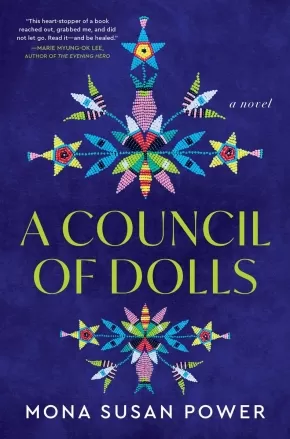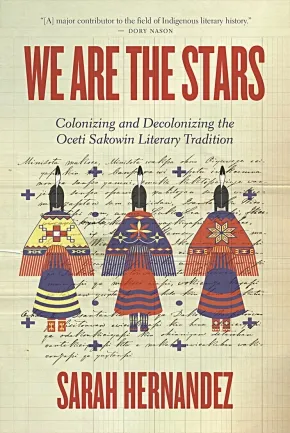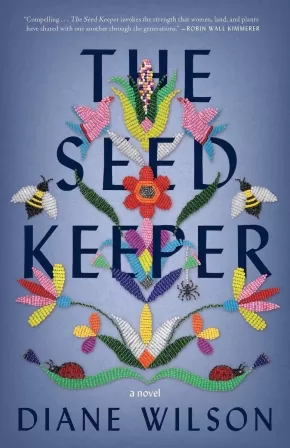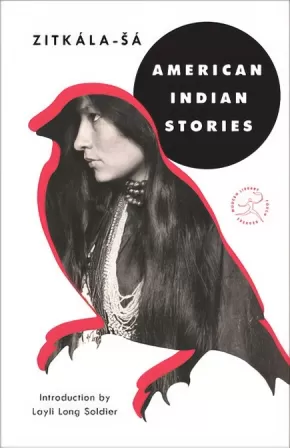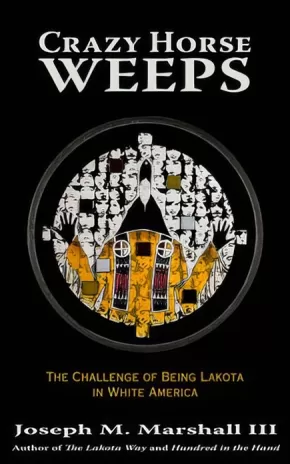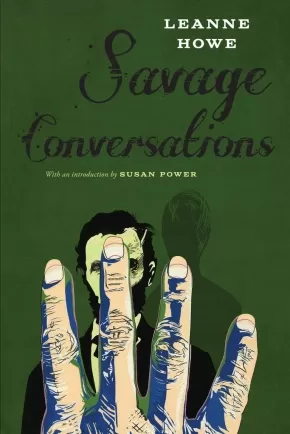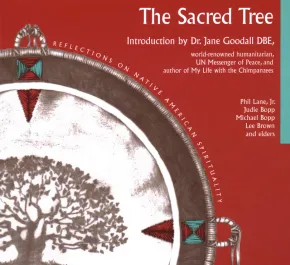Dakota
Synopsis:
Drawing its title from the 1863 Federal Act that banished the Dakota people from their homelands, this remarkable debut collection reckons with the present-day repercussions of historical violence. Through an array of brief lyrics, visual forms, chronologies, and sequences, these virtuosic poems trace a path through the labyrinth of distances and absences haunting the American colonial experiment.
Removal Acts takes its speaker’s fraught methods of accessing the past as both subject and material: family photos, the fragile artifacts of primary documents, and the digital abyss of web browsers and word processors. Alongside studies of two of her Dakota ancestors, Lynch has assembled an intimate record of recovery from bulimia, insisting that self-erasure cannot be separated from the erasures of genocide. In these rigorous, scrutinizing examinations of “removal” in its many forms—as physical displacement, archival absence, Whiteness, and vomit—Lynch has crafted a harrowing portrait of the entwined relationship between the personal and historical. The result is a powerful affirmation of resilience and resolute presence in the face of eradication.
Reviews
"In this sharp debut, words are bracketed and struck through, placed in columns and alongside arrows. . . . With each deliberate letter, Lynch deconstructs a violent past and present, while allowing herself and the reader to search for paths toward an as-yet unknown future."—Dasia Moore, The Boston Globe
"Erin Marie Lynch’s debut poetry book, Removal Acts, is a deeply personal, formally inventive investigation into history, ancestry, and loss. . . . Throughout the work, Lynch’s language remains precise, compassionate, inquisitive, and vulnerable."—Mathangi Subramanian, BOMB Magazine
"Lynch interweaves the stories of two of her ancestors with her own recovery from bulimia to explore the twinned legacies of historical and self erasure. The result is a moving meditation on 'removal' in its many forms that melds together the personal and historical to craft a testament to Indigenous resilience and survival in the face of eradication."—Eliza Browning, Electric Literature
"Removal Acts is a rich and fraught collection that confronts the legacy of displacement and erasure with searing honesty. Debut author Erin Marie Lynch does not shy away from hard questions, including her right to some of the stories in her collection. . . . Removal Acts combines technical prowess and attention to craft with deliberate experimentation, signaling Lynch as a poet with talent that far surpasses expectations for a debut author."—Ronnie K. Stephens, The Poetry Question
Additional Information
136 pages | 7.05" x 8.97" | Paperback
Synopsis:
The long-awaited, profoundly moving, and unforgettable new novel from PEN Award–winning Native American author Mona Susan Power, spanning three generations of Yanktonai Dakota women from the 19th century to the present day.
From the mid-century metropolis of Chicago to the windswept ancestral lands of the Dakota people, to the bleak and brutal Indian boarding schools, A Council of Dolls is the story of three women, told in part through the stories of the dolls they carried….
Sissy, born 1961: Sissy’s relationship with her beautiful and volatile mother is difficult, even dangerous, but her life is also filled with beautiful things, including a new Christmas present, a doll called Ethel. Ethel whispers advice and kindness in Sissy’s ear, and in one especially terrifying moment, maybe even saves Sissy’s life.
Lillian, born 1925: Born in her ancestral lands in a time of terrible change, Lillian clings to her sister, Blanche, and her doll, Mae. When the sisters are forced to attend an “Indian school” far from their home, Blanche refuses to be cowed by the school’s abusive nuns. But when tragedy strikes the sisters, the doll Mae finds her way to defend the girls.
Cora, born 1888: Though she was born into the brutal legacy of the “Indian Wars,” Cora isn’t afraid of the white men who remove her to a school across the country to be “civilized.” When teachers burn her beloved buckskin and beaded doll Winona, Cora discovers that the spirit of Winona may not be entirely lost…
A modern masterpiece, A Council of Dolls is gorgeous, quietly devastating, and ultimately hopeful, shining a light on the echoing damage wrought by Indian boarding schools, and the historical massacres of Indigenous people. With stunning prose, Mona Susan Power weaves a spell of love and healing that comes alive on the page.
Reviews
“A Council of Dolls reached out, grabbed me and did not let go. Power’s ability to make language sing, cry, scream, and laugh illuminates this heartstopper of a book that shines a light into the dark corners of America’s history. I wanted the generational journey I was taking with these unforgettable characters—and their dolls—to never end. Read it--and be healed." — Marie Myung-Ok Lee, author of The Evening Hero
“A Council of Dolls absorbs through the skin, enters the bone, and disperses through the psyche—it perfectly captures the internal roots of the Native experience. Through the lives of three Dakota women, we grapple with the emotional, psychological, and spiritual toll on Indigenous peoples enduring an often brutal system and, moreover, how strength, healing, and love reverberate down each passing generation to dispense hope and resiliency. I cannot more highly recommend Power’s newest masterpiece.” — Oscar Hokeah, PEN/Hemingway award-winning author of Calling for a Blanket Dance
"Mona Susan Power’s new novel is an honor song to the love and strength of Native families and our stories, to our brilliant selves. I couldn’t have known how much I needed the wisdom and offerings of these pages." — Kelli Jo Ford, author of Crooked Hallelujah
“This tender and magical novel will stay with me for a long time. Mona Susan Power writes with dazzling empathy. The result is a heart-rending and many-layered narrative, a captivating story which is also a thrilling testimonial to the power of stories.” — Margot Livesey, author of The Boy in the Field
"A resplendent novel about the spirited lives of three inspiring women who endure significant change and hardship. Each story so deeply compelling I wanted to read quickly but was magnetized by the transformative power of each voice. A mighty, dazzling whirlwind of storytelling. These stories lift from the page. Prepare to stay up all night. A Council of Dolls is mesmerizing. Take a deep breath! Mona Susan Power can peer into darkness and transform it." — Debra Magpie Earling — Debra Magpie Earling
“A work of exquisite beauty and courageous truth-telling, and an unforgettable homage to ancestral suffering and strength.”
— Sheila O’Connor, author of Evidence of V
“A talent like Susan Power comes along once in a lifetime, and lucky for us she's arrived. Here is a debut so stunning, so extraordinary in its depth and passion, you will swear there's a miracle on every page.” — Alice Hoffman, on The Grass Dancer
"This book is well-written. It includes elements of historical fiction and a bit of real life horror. The role of the dolls in these women's lives was the most thought-provoking aspect of the novel. It added a bit of a fantasy element to the story. I wondered what the author's intention was. The dolls seem to be symbolic in addition to invisible friends for the girls. They were also silent, supposedly inanimate witnesses to what the young women experienced. The parts of the story told from the dolls' POV were especially intriguing. I enjoyed the section about how the Shirley Temple doll was made, and the doll was presented as self-aware. The author wove mystery and symbolism around the dolls without being blatant. She left readers room to make their own interpretations. I really enjoyed and appreciated that. The book is also full of interesting philosophical statements." - Claudia, Goodreads Review
Additional Information
304 pages | 6.00" x 9.00" | Hardcover
Synopsis:
An emerging Lakota scholar’s critical interrogation of settler-colonial nations that re-centers Oceti Sakowin (Dakota) women as the tribe’s traditional culture keepers and bearers.
We Are the Stars is a literary recovery project that seeks to reconstruct a genealogy of Oceti Sakowin (Dakota) literature, and study in-depth the linkages between settler colonialism, literature, nationalism, and gender via analysis of tribal and settler colonial narratives about women and land.
Sarah Hernandez begins by exploring how settler colonizers used the printing press and boarding schools to displace Oceti Sakowin women as traditional culture keepers and bearers, with the goal of assimilating completely the Dakota, Nakota, and Lakota nations.
She then shifts her focus to decolonization, exploring how contemporary Oceti Sakowin writers and scholars have started to reclaim Dakota, Nakota, and Lakota literatures to decolonize and heal their families, communities, and nations.
Additional Information
256 pages | 6.00" x 9.00" | Paperback
Synopsis:
A haunting novel spanning several generations, The Seed Keeper follows a Dakota family’s struggle to preserve their way of life, and their sacrifices to protect what matters most.
Rosalie Iron Wing has grown up in the woods with her father, Ray, a former science teacher who tells her stories of plants, of the stars, of the origins of the Dakota people. Until, one morning, Ray doesn’t return from checking his traps. Told she has no family, Rosalie is sent to live with a foster family in nearby Mankato—where the reserved, bookish teenager meets rebellious Gaby Makespeace, in a friendship that transcends the damaged legacies they’ve inherited.
On a winter’s day many years later, Rosalie returns to her childhood home. A widow and mother, she has spent the previous two decades on her white husband’s farm, finding solace in her garden even as the farm is threatened first by drought and then by a predatory chemical company. Now, grieving, Rosalie begins to confront the past, on a search for family, identity, and a community where she can finally belong. In the process, she learns what it means to be descended from women with souls of iron—women who have protected their families, their traditions, and a precious cache of seeds through generations of hardship and loss, through war and the insidious trauma of boarding schools.
Weaving together the voices of four indelible women, The Seed Keeper is a beautifully told story of reawakening, of remembering our original relationship to the seeds and, through them, to our ancestors.
Reviews
“With compelling characters and images that linger long after the final page is turned, The Seed Keeper invokes the strength that women, land, and plants have shared with one another through the generations.”—Robin Wall Kimmerer, author of Braiding Sweetgrass: Indigenous Wisdom, Scientific Knowledge, and the Teachings of Plants
“As seeds are a gift from one generation to another, the song and the word of the seeds return to us, reminding us of our covenant, and also of the promise of love and rebirth. Always, I remember the Zapatista proverb ‘They thought they buried us, they forgot that we were seeds.’ That we are, and Diane Wilson’s narrative of intergenerational loss and rebirth fills my heart with gratitude.”—Winona LaDuke, author of Recovering the Sacred: The Power of Naming and Claiming
“A gracefully told story of continuity through seeds saved and nurtured by Dakota women, The Seed Keeper is lush and sustaining—a read that feeds heart and spirit in the same way as do the gardens that are their legacy.”—Linda LeGarde Grover, author of Onigamiising: Seasons of an Ojibwe Year
Additional Information
440 pages | 5.50" x 8.50"
Synopsis:
A groundbreaking Dakota author and activist chronicles her refusal to assimilate into nineteenth-century white society and her mission to preserve her culture—with an introduction by Layli Long Soldier, winner of the National Book Critics Circle Award and the PEN/Jean Stein Book Award for Whereas.
Bright and carefree, Zitkála-Šá grows up on the Yankton Sioux reservation in South Dakota with her mother until Quaker missionaries arrive, offering the reservation’s children a free education. The catch: They must leave their parents behind and travel to Indiana. Curious about the world beyond the reservation, Zitkála-Šá begs her mother to let her go—and her mother, aware of the advantages that an education offers, reluctantly agrees.
But the missionary school is not the adventure that Zitkála-Šá expected: The school is a strict one, her long hair is cut short, and only English is spoken. She encounters racism and ridicule. Slowly, Zitkála-Šá adapts to her environment—excelling at her studies, winning prizes for essay-writing and oration. But the price of success is estrangement from her cultural roots—and is it one she is willing to pay?
Combining Zitkála-Šá’s childhood memories, her short stories, and her poetry, American Indian Stories is the origin story of an activist in the making, a remarkable woman whose extraordinary career deserves wider recognition.
Additional Information
160 pages | 5.18" x 8.00"
Synopsis:
For Lakota, Dakota, and Nakota people, historical trauma, chronically underfunded federal programs, and broken promises on the part of the US government have resulted in gaping health, educational, and economic disparities compared to the general population. Crazy Horse Weeps offers a thorough historical overview of how South Dakota reservations have wound up in these tragic circumstances, showing how discrimination, a disorganized tribal government, and a devastating dissolution of Lakota culture by the US government have transformed the landscape of Native life. Yet these extraordinary challenges, Marshall argues, can be overcome. Focusing on issues of identity and authenticity, he uses his extensive experience in traditional Lakota wisdom to propose a return to traditional tribal values and to outline a plan for a hopeful future.
Additional Information
|
Synopsis:
May 1875: Mary Todd Lincoln is addicted to opiates and tried in a Chicago court on charges of insanity. Entered into evidence is Ms. Lincoln’s claim that every night a Savage Indian enters her bedroom and slashes her face and scalp. She is swiftly committed to Bellevue Place Sanitarium. Her hauntings may be a reminder that in 1862, President Lincoln ordered the hanging of thirty-eight Dakotas in the largest mass execution in United States history. No one has ever linked the two events—until now. Savage Conversations is a daring account of a former first lady and the ghosts that tormented her for the contradictions and crimes on which this nation is founded.
Reviews
"In Savage Conversations, LeAnne Howe experiments with the form of verse drama to tell the history of the Dakhóta resistance to colonization and the mythos surrounding the Lincoln presidency of that same period. The setting is the asylum to which Mary Todd Lincoln was involuntarily committed ten years after the death of her husband. The characters are the First Lady, whose racism against Native Americans is well-documented, the “Savage Indian” she claims to see and be tortured by nightly, and a rope. The story is a reckoning of hauntings and unprosecuted crimes, an attempt at imagining some way to live with an unbearable history of human rights abuses and genocide." - Kathryn Nuernberger, Kenyon Review
“In May of 1875, Mary Todd Lincoln is confined to an insane asylum. There, she is haunted by a ‘Savage Indian’ who scalps her nightly and sews her eyes open. In Howe's telling, the specter haunting the widowed First Lady is one of the thirty-eight Dakota men, hanged in 1862 by her husband in the largest mass execution in American history. In reading this, I was blown away. Unmoored. Sent spiraling adrift on gusts of wind.” —Rachel S, Harvard Book Store
“Part fever dream, part extended meditation on madness, Howe’s Savage Conversations is a bracing commentary on the nature of guilt and grief.”—Historical Novel Society
“Savage Conversations takes place somewhere in between its sources, between sanity and madness, between then and now, between the living and the dead. It pushes past the limitations of textual sources for telling indigenous history and accounts of insanity.”—Barrelhouse Reviews
“LeAnne Howe’s words are to savor, contemplate, and horrify. Savage Conversations explodes with the stench of guilt and insanity that undergirds the American story, whispered through a personal, familial, national, and supernatural drama revelatory in every sense. Howe’s uncanny images will long haunt readers, just as the Dakota 38 linger in land and memory, both offering a testament to the violent entanglements of past and present.” —Philip J. Deloria
“Savage Conversations invokes our own racial conflict and probes America’s psyche, its struggle to reconcile its colonialist values, indeed its white supremacy, with its multi-ethnic cultures and populations. . . . Through the masterly dramatic management of Mrs. Lincoln’s disturbing and chilling obsessions, Howe shows that there is no escape from the yesterday’s paradigms of power without a true reckoning with the injustices that set the stage for our troubled social landscape.”—On the Seawall
“Howe’s book powerfully contributes to our understanding and re-thinking of a moment in time that we are still grappling with today. In the wake of recent movements to remove Confederate monuments as we work to present the truths of history, Howe’s book directs our attention to a violent event that has not been adequately acknowledged. Through experimental form, Howe refracts a moment of history that readers simply cannot forget, that they will inevitably carry with them long after reading the last page.” —The Carolina Quarterly
Educator Information
Experimental verse drama.
Additional Information
144 pages | 5.00" x 7.50"
Synopsis:
Bestselling Native American title exploring Native North American spiritual teachings.
The Sacred Tree was created by the Four Worlds Development Project, a native American inter-tribal group, as a handbook of Native Spirituality for indigenous peoples all over the Americas and the world. This handbook is being used by the Four Worlds Development Project to eliminate widespread drug and alcohol abuse in tribal communities. It is now being shared for the first time with all members of the human family desiring personal growth.
“For all the people of the earth,” The Sacred Tree begins, “the Creator has planted a Sacred Tree under which they may gather, and there find healing, power, wisdom, and security. The roots of this tree spread deep into the body of Mother Earth. Its branches reach upward like hands praying to Father Sky. The fruits of this tree are the good things the Creator has given to the people: teachings that show the path to love, compassion, generosity, patience, wisdom, justice, courage, respect, humility and many other wonderful gifts.”
Educator Information
This book is available in French: L’arbre sacré
Additional Information
87 pages | 8.69" x 7.87"



